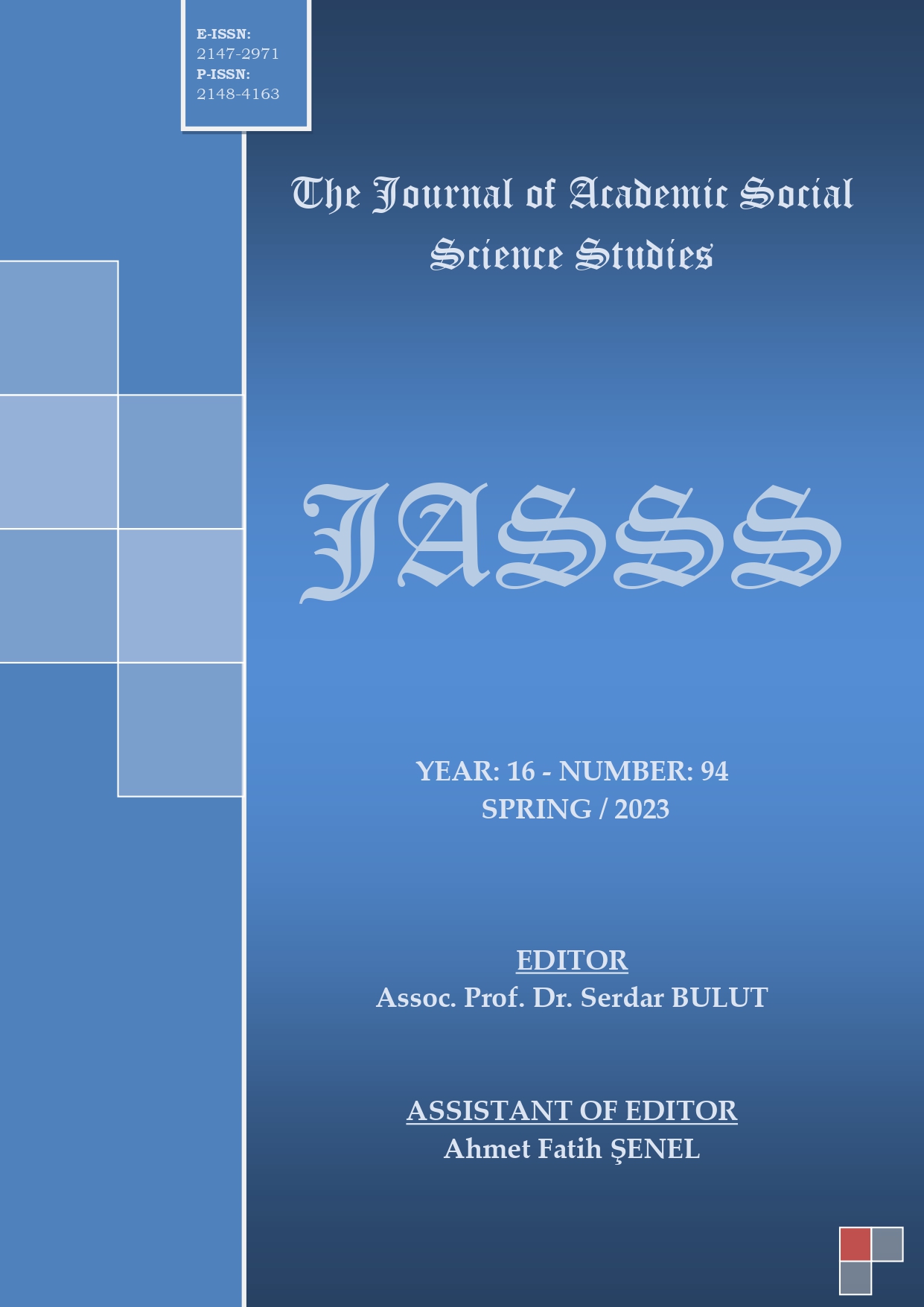Author :
Abstract
Araştırmanın amacı, okul öncesi eğitime devam eden çocukların oyun becerileri ile sosyal duygusal gelişim arasındaki ilişkinin incelenmesidir. Araştırmada nicel araştırma yöntemlerinden genel tarama modeli, genel tarama modelinden ilişkisel tarama modeli kullanılmıştır. Araştırmaya 2020-2021 eğitim öğretim yılında okul öncesi eğitime devam eden beş-altı yaş arasında çocuğu olan toplam 389 anne dâhil edilmiştir. Araştırmanın verileri araştırmacılar tarafından hazırlanan Genel Bilgi Formu, Oyun Becerileri Değerlendirme Ölçeği ve Vineland Sosyal Duygusal Erken Çocukluk Ölçeği ile Google Form aracılıyla 15 Nisan-15 Mayıs 2021 tarihinde çevrimiçi toplanmıştır. Annelere göre, kızların ve bir yıldan daha fazla okul öncesi eğitim alan çocukların oyun becerileri ve sosyal duygusal gelişim puan ortalamalarının daha yüksek olduğu saptanmıştır. Dramatik oyun ve geleneksel oyun seven çocukların oyun becerileri puan ortalamalarının, aynı zamanda günde bir-iki saat ebeveynleriyle etkileşimli oyun oynayan çocukların ise hem oyun becerileri hem de sosyal duygusal gelişim puan ortalamasının daha yüksek olduğu saptanmıştır. Oyun becerileri ve sosyal-duygusal gelişim puan ortalamalarının çocukların cinsiyetine, okul öncesi eğitim devam etme ve ebeveynleriyle etkileşimli oyun oynama süresine göre anlamlı düzeyde farklılaştığı belirlenmiştir. Ayrıca, oyun becerileri puan ortalamalarının da çocukların en sevdiği oyuna göre anlamlı düzeyde farklılaştığı görülmüştür. Oyun becerileri ile sosyal duygusal gelişim puanları arasında pozitif yönde orta düzeyde anlamlı bir ilişki olduğu belirlenmiştir. Araştırmadan elde edilen bu sonuçlar doğrultusunda; ebeveynlere çocukların sosyal duygusal gelişimini desteklemede oyun ve oyuncakların önemi konusunda eğitici hizmetler verilmesinin önemli olduğu vurgulanmıştır.
Keywords
Abstract
The aim of the study is to examine the relationship between the play skills of children attending pre-school education and their social emotional development. In the research, general survey model from quantitative research methods and relational survey model from general survey model were used. In the 2020-2021 academic year, a total of 389 mothers with children between the ages of five and six were included in the study. The data of the study were collected online via Google Form, with the General Information Form prepared by the researchers, Play Skills Assessment Scale and Vineland Social Emotional Early Childhood Scale between April 15 and May 15, 2021. According to the data collected from the mothers, it was determined that the children who received pre-school education for more than one year had higher play skills and social-emotional development. It is also higher in girls than boys. Playing skills of children who like dramatic and traditional games have higher average scores. Children who play interactive games with their parents for one or two hours a day have higher both game skills and social-emotional development score averages. Game skills and social-emotional development mean scores differ significantly according to the gender of the children, attendance at pre-school education and the duration of interactive play with their parents. In addition, the average score of game skills differs significantly according to the children's favorite game. There is a moderately significant positive correlation between game skills and social emotional development scores. In line with these results obtained from the research; It was emphasized that it is important to provide educational services to parents about the importance of games and toys in supporting the social and emotional development of children.





